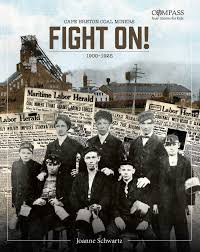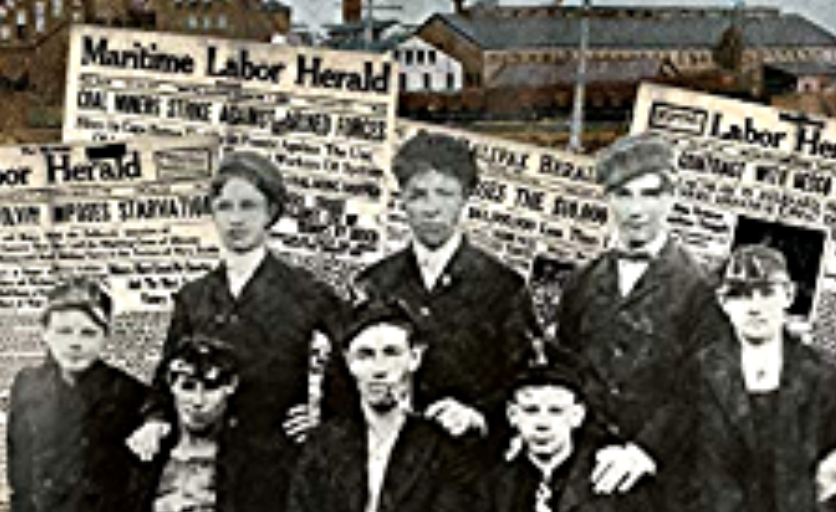

by Joanne Schwartz
Nimbus Publishing, 2020
ISBN 978-1-77108-856-5 (sc)
$18.95, 74 pp, ages 8 – 12
nimbus.ca
Cape Breton native Joanne Schwartz has written a heartfelt social history of the area’s mines and labour struggles at the start of the twentieth century. Blessed with massive coal deposits that extended up to three miles offshore, Cape Breton, Nova Scotia attracted both wealthy investors and large working-class families. Needless to say, the latter group gained much less from the association. Schwartz details how entrepreneurs routinely preyed on the workers (some as young as nine years of age) by creating both substandard housing and predatory company stores for which there was no competition, so that employees working long shifts in dangerous conditions never made a living wage during this period. Trapped in a cycle of debt by high prices at those “pluck me” stores, miners regularly struck for better wages, only to face “scabs” who took their jobs, protected by soldiers or special police forces sent in by the government to support the owners. Major labour stoppages in 1909 – 10, 1923, and 1925 led to few or no concessions since the owners had the upper hand, and miners were routinely evicted from their homes and were automatically denied any further credit at the company stores.
Classroom Connections: This short work includes more than forty photos and illustrations, a timeline, and a glossary, as well as a bibliography listing nearly three dozen sources (comprising books, articles, and websites). It would be a useful resource for social studies and history teachers, since it covers a number of topics found in most provincial curriculums. In Ontario, for example, grade 8 students are expected to learn how communities across early twentieth-century Canada dealt with challenges. Certainly, Schwartz has offered answers to these sample questions: “Why did some workers in this period join unions? What did the unions advocate? What are some similarities and differences in the concerns of unions in the past and in present-day Canada?”
Review by George Sheppard.
This review is featured in Canadian Teacher Magazine’s Winter 2021 issue.




